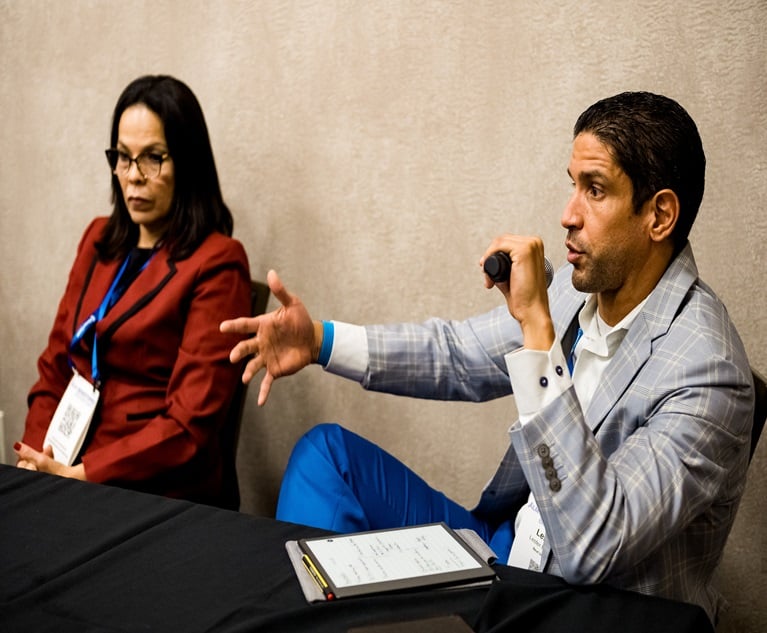Agents are facing the softest market since 1933 and many arescrambling to find growth anywhere they can. Some agents are trulyscared, and when a person is scared, emotions often trump logic.Quick fixes, even if illogical, become irresistible.
|In these times, the promise of easy growth is much like theSirens of Greek mythology. These seductive women used theirenchanting music to lure sailors to their deaths. Like the Sirens,the allure of easy growth can seduce and betray an agency. Forsome, the promise of easy growth through clusters and consolidatorsis irresistible. I realize I will not change every reader's mind,but what follows are smart suggestions for those agents who willlet logic rule rather than succumbing to the Sirens' call.
|You don't need more markets
|Agencies all over the country are enamored by clusters andconsolidators because these entities promise more markets. But whatis the real value of more markets? Every study I have seen in thelast 25 years shows that agencies with fewer carriers are moreprofitable. The current IIABA Best Practices study shows the same.Adding carriers dilutes profits.
|Some organizations offset the dilution by negotiating extramoney from carriers, but most do not do so effectively. This is agreat example of people wanting to believe so much in somethingthat no matter what the facts show, they will very often not seethe truth: They are really less profitable with more carriers.
|Even if the offset is adequate, having extra markets ispointless for 90 percent of agencies. The only reason so many extramarkets are necessary in most agencies is because the agency is notworking hard enough to proactively find the best new clients.Instead, the agency needs many markets to handle whatever comes itsway. They need a market for every Tom, Dick and Mary that callsblindly. When an agency is reactive, never knowing what will comein the door, many more markets are required than when an agency isproactive. Being proactive creates a focus. With more focus, agentsneed fewer markets. And guess what? According to Best Practices,more focused agencies grow faster.
|Agents know that carriers need a minimum premium to maintain arelationship. By clustering, agencies can achieve that minimumeasier. However, the same is true from an agency's perspective.Agencies only can operate efficiently when they do enough businesswith a carrier. One reason agencies with fewer carriers are moreprofitable is they are more efficient.
|This market is so soft that agencies that do not get moreefficient will suffer. Simply having access to more markets willonly make the situation worse.
|Pros and cons of additional services
|Some agencies are being lured by promises of value and growthgenerated by additional services, such as loss control. Personally,I am all for agencies offering loss control to every single client.But how many accounts really need loss control? After analyzinghundreds of books of business, I believe it's fair to say that thevast majority of commercial accounts written by the averageinsurance agency, even ones with $7 million to $10 million inrevenue, do not need loss control. Too many of the accountswritten, even in the larger agencies, generate less than $1,000commission and often less than $500 commission. How important isloss control to a $1,000 commercial account?
|Many agencies signing up for clusters are doing so because thecluster offers such services. Most of these agencies probably donot have more than 10 or 20 accounts that are true candidates forloss control and even then, some will not care.
|Does it make sense to give up control or pay part of yourcommissions for a service that probably will not make an iota ofdifference? If you have not fallen too far into the honey trap,analyze your book of business and identify exactly how manyaccounts really can and will use loss control or the other servicesbeing touted. Then examine the other alternatives. A few carriershave good loss control consultants. In many cities, independentloss control consultants can be hired by the job. Does it makesense to turn over all of your company contracts just for a serviceonly applicable to a few accounts?
|Additionally, what exactly would you do with those services ifyou had them? I hear a major complaint that the producers in bigagencies that have loss control will not use it. Often this isbecause they do not know how to. When a knowledgeable producer usesloss control, the result is art. They make great sales. But theseproducers have made a considerable effort to learn how to usethe
service effectively. Are you going to make this effort for the fewclients you have that can use it? If not, why buy it?
Administrative bliss?
|Every agency owner came to that position so they could deal withIT, accounting and HR, right? Getting rid of these headaches may bethe most seductive promise made by clusters and consolidators. Nodoubt, none of these functions are fun for most agency owners andyet all are necessary, especially IT. Some clusters make a bigimprovement on IT but most often, many IT problems are userrelated. In other words, the people in the agency just need tolearn their system better. Joining a cluster is not going to solvethe problem.
|Moreover, outsourcing firms can perform IT and accounting tasksfor less cost than signing contracts and giving up control of yourcontracts. Sometimes their cost is even less than what you arelikely paying your employees for doing the same job.
|Selling is the bottom line
|Once you get your new tools and markets, now what? For example,if you had a market to write engineers, loss control services forengineering firms and the time to write those accounts because youare no longer doing IT or HR, how many engineering firms are yougoing to write? How many are in your market? Do you have access tothem? Do you have the technical knowledge to write engineeringfirms correctly? I see this all the time. Agents get a market andloss control, but they really do not know how to put it alltogether.
|Even with all of the tools and markets, someone still has tosell. The tools make selling easier, but the tools will not do thework for you. If you were not being proactive before, what willchange that will switch your agency from reactive
to proactive?
The reality is never as lovely as our fantasies. Honestly askyourself if all of these new tools will really make a difference.Will you and the agency's producers actually use these tools? Makea list of all of the accounts you will most likely write becausethese tools are absolutely the only factor that has kept you fromwriting them previously. If you do not personally know all of thenew accounts you will write, you will need a marketing plan.Otherwise, you will have a neat shop with lots of tools and thephone will not ring any more often. How will you get in front ofthese more
sophisticated clients?
If you do buy into these arrangements to get new tools,companies, loss control, administrative services and so forth, whatsimultaneous commitment are you making to use those tools often andeffectively? If you're scared, cannot find growth and are lookingfor salvation, take a deep breath and think things over beforemaking any rash decisions that lead your agency right into theSirens' trap. If these markets and tools will definitely enable youto write hundreds of thousands of dollars of new commissions withvery specific prospects, then they may be a great opportunity. Ifnot, these deals are likely a solution to the wrong problem.
Want to continue reading?
Become a Free PropertyCasualty360 Digital Reader
Your access to unlimited PropertyCasualty360 content isn’t changing.
Once you are an ALM digital member, you’ll receive:
- All PropertyCasualty360.com news coverage, best practices, and in-depth analysis.
- Educational webcasts, resources from industry leaders, and informative newsletters.
- Other award-winning websites including BenefitsPRO.com and ThinkAdvisor.com.
Already have an account? Sign In
© 2024 ALM Global, LLC, All Rights Reserved. Request academic re-use from www.copyright.com. All other uses, submit a request to [email protected]. For more information visit Asset & Logo Licensing.








